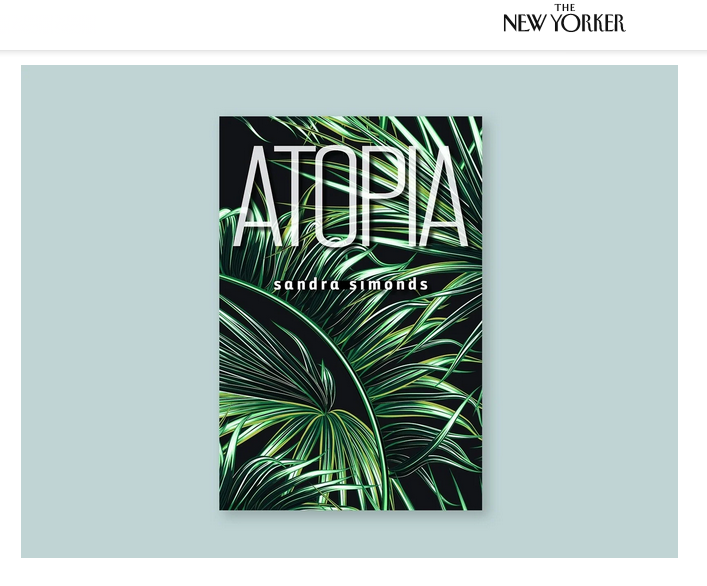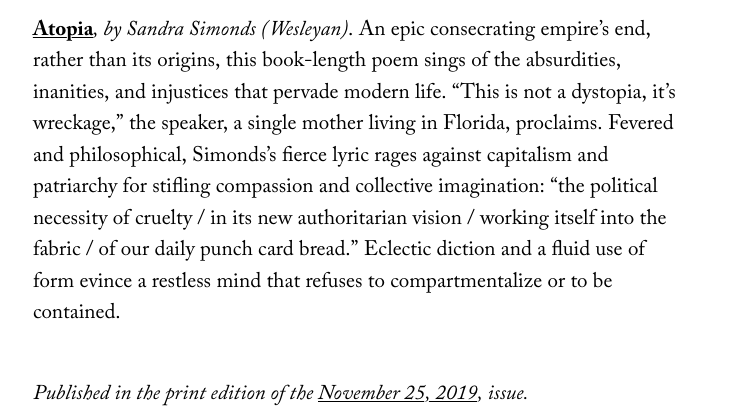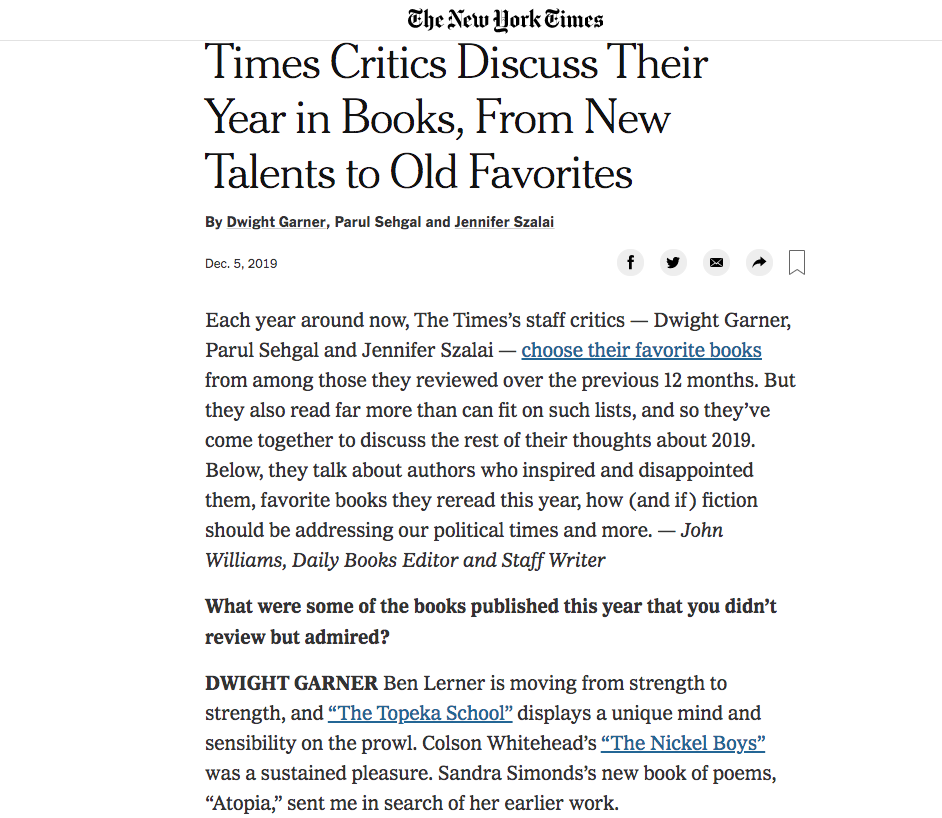Interviews
At Full Stop with Sophia Kaufman
Dialogue, “Messing with All of It,” with Poet Rodrigo Toscano at LitHub
Interview with Alina Stefanescu at Identity Theory
Interview at The University of Arizona Poetry Center
Interview at the Bennington Review
Interview and Poems at THE FLORIDA REVIEW ONLINE
Interview “Complicated, Difficult Beings” at MAYDAY
“High Wire Acts” (at the Boston Review with BK Fischer
At the Conversant via Radio Albion by Tony Trigilio (audio)
In Barn Owl Review by Krysia Orlowski
In Devil’s Lake by Rebecca Hazelton
At 12 or 20 Questions by Rob McLennan
Reviews of Assia
Reviews of Triptychs
The magic of her work lies in how Simonds conveys a particular image of capitalism rendered obsolete by the Schumpeterian wave of creative destruction, overtaken by “One-Click” purchases, selfcheckouts, and e-receipts…Triptychs rails against ossification of feeling and heralds an elegy if we fail to care for people and things. Tiffany Troy, rain taxi review of books
Why do we need this poetry now? Simonds’s Triptychs captures the malaise and the anxiety and infinitely delayed gratification of the Covid years. It validates the fragmented nature of these years and the columns fracture the pandemic and open up possibilities between, alongside, and among our experiences, which have otherwise been circumscribed by travel bans, stasis, and lost opportunities. Benjamin Landry, Verse Curious
Reviews of Atopia



Reviews of Orlando
Orlando in the Los Angeles Review of Books
Orlando Reviewed in Publishers Weekly
Orlando Reviewed at The Arkansas International
Orlando Reviewed at the Chicago Review
Orlando Reviewed in Lana Turner
Reviews of Further Problems with Pleasure
Further Problems with Pleasure in Publishers Weekly
Further Problems with Pleasure Reviewed by Chris Stroffolino at Jacket2
Reviews of The Sonnets
The Sonnets in Boston Review by Lindsay Turner
The Sonnets in Publishers Weekly
Review of The Sonnets and Steal it Back by Ron Slate
Reviews of Steal it Back
Review of Steal it Back at Publisher’s Weekly
Reviews of Mother Was a Tragic Girl
Mother Was a Tragic Girl in Montevidayo by Daniel Borzutzky
Mother Was a Tragic Girl in the Lit Pub by Nathan Logan
Mother Was a Tragic Girl in Sink Review by Lucy Biederman
Mother Was a Tragic Girl in Barn Owl Review by Jay Robinson
Reviews of Warsaw Bikini
Warsaw Bikini at Bookslut by Gina Myers